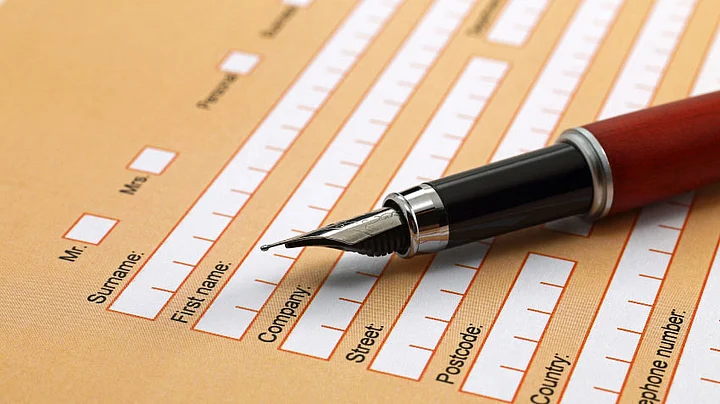It’s a new year at school. There is expectation in the air, students are squirming in their seats, facing the teacher. She starts going through the attendance register and begins familiarising herself with the names. Until, she stops at your name. And says, ‘I think you forgot to give in your surname. What is it?’
Fast forward to college applications.
Your room is littered with all kinds of testing material, while you are struggling with the registration procedure for IELTS. The form refuses to accept the blank ‘Surname’ field. It’s not valid, it says. You let out a scream of frustration, call the IELTS representative and explain ‘Sir, I don’t use a surname, but rest assured I’m a real person.’ The process that should ideally take 15 minutes, takes you three days.
At the end of which you have a new identity, ‘Maanvi FNO.’ First Name Only.
My name is Maanvi, and unlike SRK’s Rizwaan Khan, I choose to identify myself only by my first name. It’s a choice that my parents made for me when I was a child, and one that I have chosen to continue as an adult.
But it’s a choice that has also meant frustrating encounters with Indian bureaucracy, unsolicited advice, probing questions and a primer on how essential (and prevalent) caste is in India.
Caste 101 - A Practical Experience
I don’t use a surname because I believe that having a surname propagates the caste system - implicitly or explicitly. It’s a personal step to establish my identity, separate from my caste. It’s my way of rejecting what I perceive to be a dangerous axis of discrimination in Indian society. If one of the social roles given to me at birth is one I don’t agree with, surely I have the right to give it up?
India doesn’t think so.
“But how can you not have a surname? Aisa kaise ho sakta hai? I can’t register you for Aadhar card,” the person at the counter argues. After repeated reiterations, I lose my temper and hit back, “Then don’t give me one!”
The bureaucracy in India looks at surname-less people (and yes, there are plenty more) as abnormal tribes. And so, it asks them to go through the labyrinth of red tape twice or sometimes, even thrice. Whether it is passports, college registration or bank accounts.
Sometimes, you plaster a smile on your face, gather all your patience and make it through. And sometimes, you just want to give up. Get a surname and be happy. Be normal.
There are other annoyances, bringing startling insights in tow. After narrating exactly why I don’t have a surname (which I sometimes think I should record so I can just hit ‘Play’ next time someone asks) a friend said, “That’s such a progressive step! But listen, what was the surname you gave up?”
“Well, that’s the bloody point, you see,” I replied
And it’s not just educated people in some of the best colleges in the country who ask this. Travelling on a train, I happen to strike up a conversation with my fellow traveller. After fifteen minutes or so the inevitable question pops up, “Where are you from? Kahaan ke?”
Sometimes, the question is not even couched in pretensions of urban niceties, “Jaat kya hai, beti?”
Is Giving Up My Surname Elitist?
Probably not. I am not arguing that giving up a surname can resolve the complex caste problem. In fact, there are those who say that for them their caste identity is something to be proud of. It is not something they deem irrelevant and definitely not something that they would be willing to give up. In fact, most people I know who belong to the Dalit community, are fiercely protective of their caste identity and want to bring social justice on their terms - as members of a community that have been historically denied equal access to employment and have faced brutal social oppression.
But that is just it.
Not only is caste a complex issue, it also holds a different value for different people. For me, while I acknowledge caste discrimination, I also believe that giving up my surname is one way to challenge the dominance of caste system in Indian society.
But if a caste-less society is the ideal we all aspire to, then why is the Indian state so unfavourable to those who have decided that their caste doesn’t define their identity?
In fact, in a lot of ways, it is reinforcing caste-based discrimination.
For instance, in its online enrolment form, Congress seeks specific information about your caste. When writers are working on screenplays, they have to factor in the caste of the character to ensure that the film appeals to the masses. And even in the hallowed portals of the IT city of Bangalore, inter-caste marriages are a taboo.
I know there are people who say that caste system doesn’t exist in India. And I seriously don’t know which India they are living in, which colleges they go to and what jobs they work in.
Because everywhere I look, I see caste as the most essential element of Indian identity. So essential, that it has become invisible.
Normal, almost.
And for me, not having a surname is a small, personal battle cry against the ‘normal.’
PS: I got my Aadhar card, eventually. #FreeYourMind
(At The Quint, we question everything. Play an active role in shaping our journalism by becoming a member today.)
